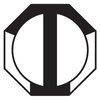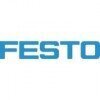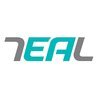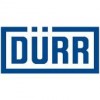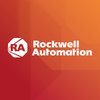Filter interviews by
Automotive Robotics (India) Design Engineer Interview Questions, Process, and Tips
Automotive Robotics (India) Design Engineer Interview Experiences
6 interviews found
I applied via Job Portal and was interviewed in Dec 2024. There were 2 interview rounds.
(2 Questions)
- Q1. Ehat is sheetmetal?
- Ans.
Sheetmetal is a type of metal formed into thin and flat pieces, commonly used in manufacturing for various applications.
Sheetmetal is typically made from materials like aluminum, steel, or copper.
It is commonly used in industries such as automotive, aerospace, and construction.
Sheetmetal can be cut, bent, and formed into various shapes and sizes using tools like shears, brakes, and presses.
- Q2. Sheetmetal operation?
- Ans.
Sheetmetal operation involves cutting, bending, and forming sheet metal to create various components.
Cutting: Using tools like shears, lasers, or plasma cutters to cut sheet metal into desired shapes.
Bending: Using press brakes to bend sheet metal at specific angles.
Forming: Using techniques like deep drawing or roll forming to shape sheet metal into complex geometries.
(1 Question)
- Q1. Salary discussion
(2 Questions)
- Q1. Tell me the GD&T symbols
- Ans.
Geometric Dimensioning and Tolerancing (GD&T) symbols are used to define the geometry of parts and assemblies in engineering drawings.
GD&T symbols include position, concentricity, symmetry, perpendicularity, parallelism, flatness, circularity, cylindricity, profile of a line, profile of a surface, etc.
Each symbol has a specific meaning and is used to communicate the required tolerances for manufacturing and inspection ...
- Q2. Difference between solid & sheetmetal design
- Ans.
Solid design involves creating 3D models with volume, while sheetmetal design focuses on creating 2D models that can be bent or formed into 3D shapes.
Solid design is used for creating objects with volume and complex shapes.
Sheetmetal design is used for creating objects that can be easily bent or formed, typically used in manufacturing processes like metal fabrication.
Solid design often involves features like fillets, c...
Skills evaluated in this interview
I applied via Naukri.com and was interviewed in Dec 2024. There was 1 interview round.
(1 Question)
- Q1. What is sheetmetal?
(2 Questions)
- Q1. Basic questions
- Q2. Experience about questions
(2 Questions)
- Q1. Salary package negotiable
- Q2. General information about you
Automotive Robotics (India) interview questions for designations
(1 Question)
- Q1. Technical interview
(1 Question)
- Q1. Salary discussion
I applied via Approached by Company and was interviewed before Jan 2023. There were 2 interview rounds.
(1 Question)
- Q1. Tool test using creo software by modeling and detailing the given drawing
(1 Question)
- Q1. About GD&T previous experience
Design Engineer Jobs at Automotive Robotics (India)
Top trending discussions






Interview questions from similar companies

Senior Engineer Interview Questions & Answers
Honeywell Automationposted on 22 Feb 2015
Interview Questionnaire
2 Questions
- Q1. Standard HR questions
- Q2. Questions based on my POR's and extra curricular activities
Interview Preparation Tips
Experience: Good projects and internships helped me to get through this round
Round: Test
Duration: 60 minutes
Round: Technical Interview
Experience: Questions related to signal processing (included image signal processing as well), control and communications. Also there were few technical questions based on the internships and the projects done. This interview lasted for about 30 mins.
Round: HR Interview
Experience: 45 mins of HR round. All the standard HR questions were asked and questions were based on each and every point that you have put up in the resume
College Name: IIT MADRAS

Interview Questionnaire
2 Questions
- Q1. Description about me
- Q2. Weakness in professional life
- Ans.
My weakness is sometimes taking on too much work and struggling to delegate tasks effectively.
Difficulty delegating tasks
Tendency to take on too much work
Working on improving time management skills
Interview Preparation Tips
Experience: They intimated as aptitude but it included Verbal, Quants and basics of programming and data structures & algorithm.
Round: Technical interview round 1
Experience: In this round I was asked about flight mechanics & dynamics and controls’ by giving several conditions of practical importance, some part of engine structures and thermal science, my earlier projects and questions on that, some questions from the internship’s work and M.Tech thesis work. Very fundamental as well as complex questions were asked while explaining about the projects and thesis work.
Round: technical interview round 2
Experience: I was sent to the panel interviewing for mechanical students and there I was asked questions from various subjects as well as for various conditions given on spot. Including both the technical interviews, I was asked questions from around 9-10 subjects of mechanical engineering. Apart from the questions from the course work, half of the interview was focused on the projects that I did earlier. I was asked to explain about the projects and give good insights of my contributions in that and accordingly I was asked questions from that as well. Later part of the technical round was focused for my thesis work. They started asking about the motivation behind the topic of the thesis and the technical platform set so far for the same. Concluding questions were from the company’s work and how I would be able to relate my expertise and thesis work for their benefit.
Round: HR Interview
Experience: HR round was more or less usual. Description about me and weaknesses in professional life were asked. The tricky one was one particular question about joining Honeywell and at the end of my answer, I was asked to compare Honeywell and the stalwarts of aerospace industry on my answer’s ground.
General Tips: Revise the course works, some part of the projects, be focused for profiles and prepare accordingly. Prior knowledge about companies work and the profile helps a lot. Sound knowledge of thesis work, approach and the applications, motivation behind the topic and the work completed till the placement season starts should clearly be checked. If you are not good at programming and DS & algo then revise the basics of these (helps for aptitude). Be mentally prepared for multiple rounds of technical interviews. Shape yourself according to the profile and surf through the company’s site beforehand.
Get some suggestions and feedback from seniors (specifically, M.tech students should talk to seniors, fellow students and lab mates who have been in industries) for technical interviews. Focus on your approach towards the problem for the worst case.
During technical interview, don’t try to brag about the topic that you are not sure about. They sometimes want to test your approach and attitude for the problem given to you (which will be out of your comfort zone) rather than the accuracy of the answer. Since verbal was also the part of aptitude, don’t forget to look that during your preparation.
College Name: IIT Kanpur

Senior Engineer Interview Questions & Answers
Honeywell Automationposted on 19 Aug 2015
Interview Questionnaire
5 Questions
- Q1. Questions about flight mechanics and dynamics and controls
- Q2. Questions about mechanical engineering
- Q3. Questions on the thesis one has worked on and various projects and internships
- Q4. Questions based on practical situations
- Q5. Questions on basics of material, fundamentals of continuum mechanics, thermal science, parts of engine structure, etc
Interview Preparation Tips
Experience: I was guided by placement office quite appreciably for preparation of resume. First by one to one interaction and second by suggesting to talk to the seniors who are either injob or are hereafter the job. As it is always suggested about resume that, it reflects you in brief, you have to get it as good as you can. I followed the guidelines, made the first draft, got it corrected from some of my friends who are working in industries and got feedbacks from students who have experience from industries.
Round: APTITUDE TEST
Experience: It was intimated as aptitude but it included Verbal, Quants and basics of programmingand data structures & algorithm.
Round: Technical Interview
Experience: I went through two technical rounds and both of these included questions starting from the very basics of materials to the continuum mechanics’ fundamentals and applications. In the first round I was asked about flight mechanics & dynamics and controls’ by giving several conditions of practical importance, some part of engine structures and thermal science, my earlier projects and questions on that, some questions from the internship’s work and M.Tech thesis work. Very fundamental as well as complex questions were asked while explaining about the projects and thesis work. For the second round, I was sent to the panel interviewing for mechanical students and there I was asked questions from various subjects as well as for various conditions given on spot. Including both the technical interviews, I was asked questions from around 9-10 subjects of mechanical engineering. Apart from the questions from the course work, half of the interview was focused on the projects that I did earlier. I was asked to explain about the projects and give good insights of my contributions in that and accordingly I was asked questions from that as well. Later part of the technical round was focused for my thesis work. They started asking about the motivation behind the topic of the thesis and the technical platform set so far for the same. Concluding questions were from the company’s work and how I would be able to relate my expertise and thesis work for their benefit.. In the morning, Honeywell started it’s processing at around 6.30 am and I went for the first technical round at around 7 am. After some basic questions from the resume I was asked about the flight mech & controls. After sometimes the interviewer told me about his background, which was avionics and then he started from that. It must have gone over around 45 minutes. Second round of Honeywell was gruelling and I felt little uncomfortable at some points.
Round: HR Interview
Experience: HR round was more or less usual. Description about me and weaknesses in professional life were asked. The tricky one was one particular question about joining Honeywell and at the end of my answer, I was asked to compare Honeywell and the stalwarts of aerospace industry on my answer’s ground.
General Tips: Since I was looking only for the core aerospace companies, I was not looking very much about the aptitude and GD (specially, GD was not required). I was focusing about the technical side of the preparation, coursework, projects that I have done earlier and thesis work. I used the material provided by SPO for preparing the aptitude test solved some CAT papers and some online resources were useful. Further, I referred some core course works, specifically, thermal, fluid, aerodynamics, propulsion, structures & materials, materials & metallurgy and flight mechanics & dynamics for technical interviews.
Revise the course works, some part of the projects, be focused for profiles and prepare accordingly. Prior knowledge about companies work and the profile helps a lot. Sound knowledge of thesis work, approach and the applications, motivation behind the topic and the work completed till the placement season starts should clearly be checked. If you are not good at programming and DS & algo then revise the basics of these(helps for aptitude). Be mentally prepared for multiple rounds of technical interviews. Shape yourself according to the profile and surf through the company’s site beforehand. Get some suggestions and feedback from seniors(specifically, M.tech students should talk to seniors, fellow students and labmates who have been in industries) for technical interviews. Focus on your approach towards the problem for the worst case. During technical interview, don’t try to brag about the topic that you are not sure about. They sometimes want to test your approach and attitude for the problem given to you (which will be out of your comfort zone) rather than the accuracy of the answer. Since verbal was also the part of aptitude, don’t forget to look that during your preparation. Final Tips : Don’t lose hope and be focused for the profile that you are interested in and narrow down the companies accordingly. It’s all your attitude, past experience (both academics and professional) and preparation for the placements that will help you to nail it. 1st, 2nd or any other day or any other company (as long asthe profile matches with your interest) don’t matter much. At the end of the day, getting in the core-profile is what matters most (if you are interested incore alone) and if it is your preferred company then it’s a boon. Have faith in yourself and believe in the next option if you don’t get the first one.
College Name: IIT KANPUR
Motivation: Other companies that I was shortlisted for : GE, Rolls-Royce, Airbus. Analysis of available options (based on profile, growth, compensation, BrandName, etc) :As for the first day, GE didn’t seem inclined in taking Aerospace Engineering students and I was not looking for Rolls-Royce very interestingly. I was mainly focusing on Honeywell, Eaton and Airbus and was shortlisted to interview with these three. Because of Honeywell’s versatility and the involvement in R&D(as I got the feedback from people working in there), I was focusing mainly on Honeywell. And it was very much favourable from compensation point of view as well. Finally I was selected in both Honeywell and Eaton, and chose Honeywell.

Interview Questionnaire
5 Questions
- Q1. Questions on Fluid Mechanics, Thermodynamics, Turbo-machinery etc
- Q2. Why would you like to join the company ?
- Ans.
I am excited to join the company because of its reputation for innovation and commitment to excellence.
I am impressed by the company's track record of developing cutting-edge technology.
I am drawn to the company's culture of collaboration and teamwork.
I am excited about the opportunity to work with a talented and experienced team of engineers.
I believe that the company's focus on quality and customer satisfaction align...
- Q3. Where do you see yourself 10 years afterwards ?
- Ans.
In 10 years, I see myself as a highly experienced engineer leading a team of talented individuals towards innovative solutions.
Leading a team of engineers towards successful project completion
Continuing to learn and stay up-to-date with new technologies
Mentoring and guiding junior engineers
Contributing to the growth and success of the company
Exploring opportunities for professional development and growth
- Q4. Failures and successes during your careeer
- Ans.
I have had both failures and successes in my career as a Senior Engineer.
One of my biggest successes was leading a team that developed a new software system that increased efficiency by 50%.
I also had a failure when I underestimated the complexity of a project and it ended up being delayed by several months.
Another success was implementing a new process that reduced errors by 75%.
I learned from a failure when I didn't ...
- Q5. Questions on resume
Interview Preparation Tips
Experience: The test included General quantitative and logical reasoning, verbal reasoning, questions on basic topics of Mechanical Engineering like Thermodynamics, Mechanics of Solids, Energy Systems, Manufacturing etc.
Round: Technical Interview
Experience: Advanced questions on the topic of your interest specifically related to Aerospace and Mechanical Engineering like Fluid Mechanics, Thermodynamics, Turbo-machinery etc, questions like what do you know about the company.
General Tips: Always follow your interest while choosing a suitable job. If you are not sure about your interest, keep options open and try to get information on all those options and select accordingly. Never run after money only. One must prioritize his/her interests first, then the kind of work in the company and then the package.
Prepare for the technical profiles by studying core subjects which interests you the most, but a person needs to have basic knowledge of other topics related to your department also.
Apply for the company only after gaining sufficient knowledge about it. Identify your interest and what kind of work you like, then apply to the company which suits your style of working and is apt for you to pursue your interests. One must not apply to all the companies just because everyone is applying. One must judge whether he/she is capable for that job or not and then decide in which companies to apply.
Try to be confident with your answers and give genuine replies in HR interviews. One must not give vague answers and change views as this would clearly give the indication that you are not able to give clear answers or you are making them up.
College Name: IIT Kanpur
Automotive Robotics (India) Interview FAQs
Tell us how to improve this page.
Automotive Robotics (India) Interviews By Designations
- Automotive Robotics (India) Design Engineer Interview Questions
- Automotive Robotics (India) Software Developer Interview Questions
- Automotive Robotics (India) Graduate Engineer Trainee (Get) Interview Questions
- Automotive Robotics (India) Senior Engineer Interview Questions
- Automotive Robotics (India) Lead Engineer Interview Questions
- Automotive Robotics (India) Software Engineer Interview Questions
- Automotive Robotics (India) Engineer III Interview Questions
- Automotive Robotics (India) Sales Manager Interview Questions
- Show more
Interview Questions for Popular Designations
- Mechanical Engg. Design Interview Questions
- Senior Design Engineer Interview Questions
- Electrical Design Engineer Interview Questions
- Structural Design Engineer Interview Questions
- Piping Designer Interview Questions
- Auto CAD Designer Interview Questions
- Junior Design Engineer Interview Questions
- Hardware Design Engineer Interview Questions
- Show more
Automotive Robotics (India) Design Engineer Interview Process
based on 6 interviews
1 Interview rounds
- Technical Round
Design Engineer Interview Questions from Similar Companies
Fast track your campus placements
Automotive Robotics (India) Design Engineer Reviews and Ratings
based on 24 reviews
Rating in categories
Bangalore / Bengaluru
4-9 Yrs
Not Disclosed
|
Design Engineer
156
salaries
| ₹2.8 L/yr - ₹8.3 L/yr |
|
Engineer 1
138
salaries
| ₹2.8 L/yr - ₹8 L/yr |
|
L2 Engineer
104
salaries
| ₹3.8 L/yr - ₹11.7 L/yr |
|
Senior Engineer
97
salaries
| ₹5.5 L/yr - ₹13.5 L/yr |
|
Senior Design Engineer
77
salaries
| ₹5 L/yr - ₹12 L/yr |

Siemens

Schneider Electric

Johnson Controls

Honeywell Automation
- Home >
- Interviews >
- Automotive Robotics (India) Interview Questions >
- Automotive Robotics (India) Design Engineer Interview Questions


